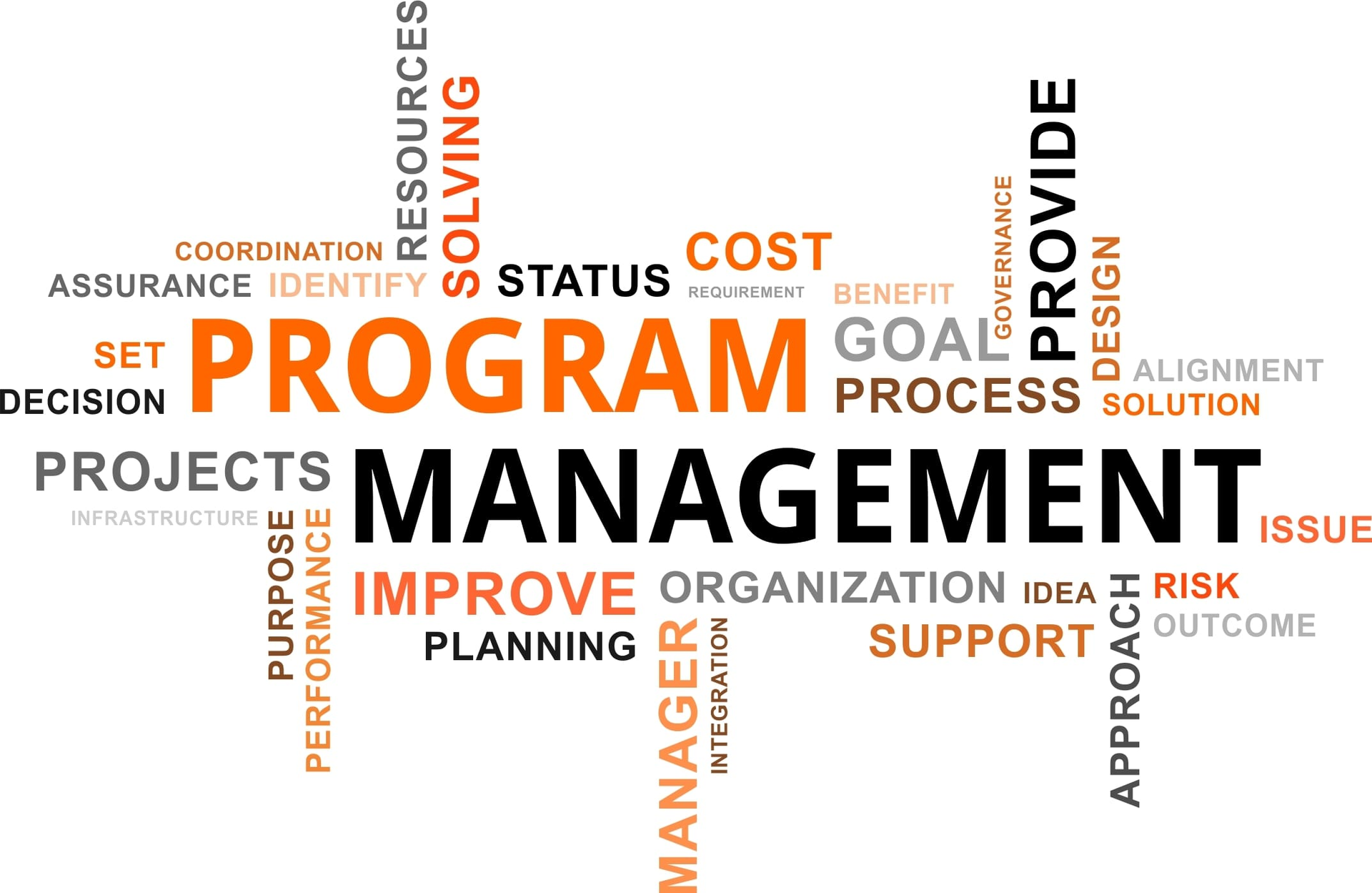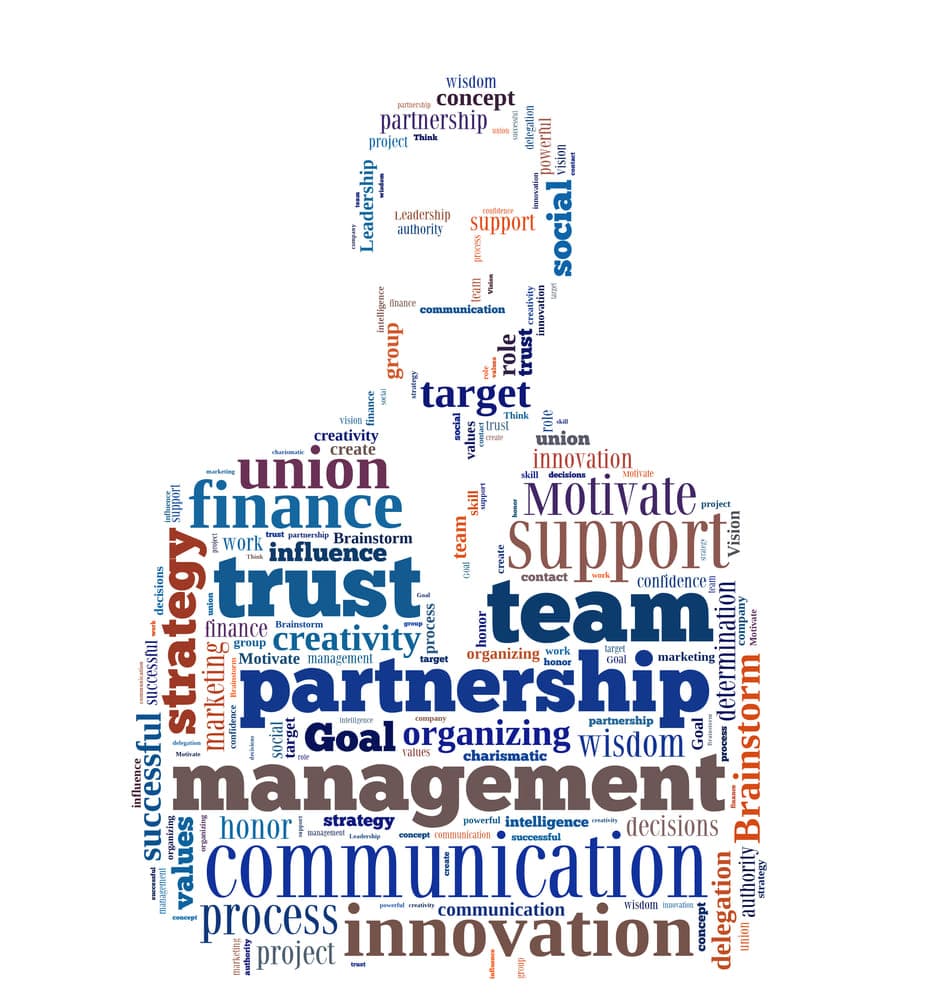Are you interested in a program manager job and curious about the program manager requirements (qualifications and qualities required) for this role? An experienced program manager is sought after for their proven ability to strategize, lead, and coordinate program initiatives across different disciplines within the organization, ensuring the delivery of desirable outcomes and optimizing productivity throughout the program’s lifecycle.
You need a mix of educational credentials, strategic experience, and soft skills, not to mention select certifications that endorse your expertise. This article lays out the essentials, steering you through the qualifications and core competencies pivotal for success in this role.
Key Takeaways
- Program managers are crucial to aligning multiple interconnected projects with strategic business goals, requiring skills in analysis, leadership, and stakeholder engagement, along with a relevant bachelor’s degree and professional experience.
- Certifications like PMI-PgMP and MSP provide an edge for program managers by validating their skills and commitment to the field, offering career advancement possibilities and industry recognition.
- Tools like monday.com, Smartsheet, and Microsoft Project, as well as professional networking and industry events, play an important role in enhancing a program manager’s efficiency and career development.
Understanding the Program Manager Role
Program managers take part in the operation of an organization. This part seeks to decompose the Program Manager job description in respect to the major role requirements and qualifications. They are predominantly responsible for designing, coordinating, and managing a number of interrelated projects that are in accordance with the company’s strategic goals. Program managers play an important role in performing this significant responsibility, since they are essential in ensuring that the individual projects are linked to the strategy of the business.
It is necessary for candidates to know their duties that are specified in a job description in detail. Program manager duties include integration of related projects, budget management, control of progress, supervision of cross-functional teams, strategic planning, roadmap creation, program performance evaluation, and preparation of reports to program directors.

One needs to have certain skill sets that are defined in the job description to be a successful program manager. Key among these go and management skills include; critical thinking, good communication, and leadership techniques.
Goal setting ability in addition with leadership as a skill that allows them to tread beyond just project level activities but how do they fit in with the bigger objectives. These positions require sophisticated analytical capabilities and effective stakeholder engagement skills which help in ensuring effective attainment of targeted results by efficiently managing programs.
So that various programs are run effectively and the required accomplishments made, it is necessary that the appointed candidates have all these key abilities that are required from Program Managers hence they effortlessly link individual/project-based operational or management related activities because they are focused towards being result oriented which is important organizational efficiency where business interests remain protected as accountability is maintained among the stakeholders and managers alike.
Program managers supervise management of cross-functional and interdisciplinary teams, bring alignment of individual projects under larger company program, and supervise associated projects to achieve overall program objectives.
Key Requirements for Program Managers
The path to an effective program manager is a good educational foundation. This position is usually for people who have at least the Bachelor degree in a relevant area such as business administration, communications, computer science and marketing. Employment as a project manager is very much appreciated and is a proof of one’s ability to manage teams, which is a key competence of a program manager position.
Program management expertise is crucial, emphasizing its role in displaying competence of skills and qualifications on projects, appreciation of long-term program management experience and the capacity to manage change and illustrate strategic vision.
Qualifications aside from education and professional qualifications play a critical role becoming an effective program manager. Soft skills are also significant contributors: leadership attributes that promote free flow of information with team members for idea sharing to improve general performance.
Other personal characteristics, aside, academic achievements and work experience, work significantly in the fulfilment of responsibilities required of Program Managers’ roles. Chief in this list are soft-skills, especially, good communication. These all helps them connect informatively with their colleagues leading to a reduction in tension levels within projects consequently enhancing the delivery success rates significantly as it helps in weaving different formats into strategies.
The Difference Between Program and Project Managers
The roles of program manager and project manager are both important in the organization but they are different in their duties and focus areas. The main concern of an expert program manager is strategy and coordination of a number of projects to assure that they are in line with long term business goals. In contrast, project managers are responsible for the daily operation of an individual project that is of a short term and has tangible outcomes.

Because of its wider nature, a program manager has to control a set of interrelated projects and make sure that they serve the company’s strategic objectives. In contrast, project managers focus on the attainment of set objectives within particular tasks. Therefore, activities carried out by program managers usually are more substantial projects such as handling interproject dependencies or resource optimization across all parts of the programs – tasks that do not pertain to a typical project manager.
Further Reading: The Ultimate Decoding: Project Vs Program Manager Difference
Building a Solid Foundation: Education and Experience
Education and work experience play a significant role in the foundation of a good program manager. To start with, a bachelor’s degree in business or management allows developing the fundamental knowledge and skills, and the practical experience in project management is crucial for getting to the bottom of these complexities.
There are different types of bachelors programs to choose from when someone is aspiring to be a program manager. The BSBA in Project Management and Business Analysis at Towson University and online Bachelor’s programs in Project Management by Arizona State University. The University of Arizona, and Southern New Hampshire University are considered some of the most popular options. Most of these accredited courses include important topics such as leadership development, management principles, administration of human resource, and core business classes including accounting, finance fundamentals, and strategic planning.
Bachelor’s Degree in Related Fields
To qualify for a program manager job, one should have a degree in business administration, management or related discipline at the bachelor’s level. Among these areas are programs offered in the schools of Northwestern University and the University of California, Berkeley.

These courses of degree are related to entrepreneurship, human resource management, project management, market research, and overall business strategy. These courses have critical skills for prospective program managers such as employee supervision methods, fund allocation strategies, and effective project management besides promoting excellent leadership qualities and organizational competency.
The required knowledge for those who are seeking to become professional in program management can be obtained by enrolling in such courses. They will acquire basic knowledge of staff delegation, recruitment procedures, budgeting rules, and successful project planning. Further, such education will provide them with strong leadership skills as well as refined problems solving features, which are all necessary qualities that are expected from proficient program managers.
Gaining Relevant Work Experience
In education, work experience is a major factor as to what makes program managers successful. This involves past positions in program management which present a relevant qualification and skill set, together with a strong experience in the specific field that the program is related to being managed.
Normally, a program manager will be expected to have at least five years of work experience. In this period, they usually develop important skills which include managing portfolios, scoping projects properly, effective methods of communication, and leadership skills.
Apart from the usual employment opportunities, participating in side projects or volunteering works may also yield one important project management skills. Getting internships or looking for related certifications are some of the actions that would help in better gaining of specialization which then supports success under the programs managed by these professionals.
Developing Essential Program Manager Skills
A program manager should have a particular set of abilities such as leadership, team management skills, communication, and business acumen. The role of these competences is crucial for the success of any program.
This is required to gain those skills and one can do so by attending training programs or by getting feedback from others. Studying project management methodology and observing other experienced project managers in action also helps. Transparency when creating communication methods and investment in team development are vital for productivity.
The successful execution of programs and process improvement approaches requires the program managers to have in-depth knowledge of business processes and the skills to execute them. Using program management tools is essential in planning, scheduling, and tracking work in real time, what makes one to be able to make smart decisions and effectively manage programs.

Leadership and Team Management
Effective leadership is the most important aspect of program management. A program manager should have good skills in managing the team, creating a good work atmosphere and effective solving of conflicts. The key to successful team management is to keep the team harmony, to ensure transparency and communication.
Utilization of approaches like team makeup balancing, clear process visibility and effective communication enables program managers to manage numerous complex projects simultaneously. This results in better program wide team performance. When disputes occur among members of the project teams under their direction, program managers should take control in order to resolve the issue and continue with the project without obstructions.
Communication and Business Acumen
Good communicating abilities are a must for an effective program manager. They facilitate transparency, complexity reduction, project timeline coherence, and team consistency. Good communication develops confidence with stakeholders. Active listening, eye contact and confirmation of understanding skills are some ways that program managers can increase their communication skills.
Business sense is another important feature of a program manager as it helps them see the role of their initiatives in the general success of the company. This guarantees the alignment of the programs with the company’s strategic goals.
The business acumen of program managers can be improved through several methods including doing strategic thinking, knowing the stages of the life cycle of the customer and understanding the operations within an organization. Ongoing learning through research studies and industry meetings also help in developing a strong business acumen along with networking opportunities and seeking help from the expert mentors who have control over management decisions.
Pursuing Program Management Certifications
In the program management world, which is fierce to competition, certifications can be a noticeable advantage. Certifications including PMI-PgMP and MSP not only confirm a person capabilities and expertise in program management but also tell about his/her passion to this profession.
These credentials have various benefits.
- Enhancing skills
- Improving professional reputation
- Increasing competitiveness
- Boosting earning potential
- Providing comprehensive knowledge and professional credibility within the realm of program management
They serve as significant milestones on one’s journey towards becoming a proficient program manager.
PMI-Program Management Professional (PgMP)
The PMI-Program Management Professional (PgMP) certification is an esteemed accreditation that attests to a person’s competence in program management. For a person to be a candidate for this credential, he or she should have a four-year college/university degree or have at least 48 months of project management experience. In alternative, the candidates may also have PMP certificate.

Conducted by the Project Management Institute (PMI), the PgMP exam assesses competence in a number of key areas associated with managing programs including management program level challenges and business strategy. It also includes critical competencies such as economic forecasting, feasibility analysis, and financial measurement.
Even though obtaining this certification requires a challenging process, its possible advantages for career moving forward should be thought of as a valuable investment opportunity.
Managing Successful Programs (MSP)
The MSP certification is a very famous program management credential. It offers two levels of training: MSP Foundation, which addresses primary principles and processes, and MSP Practitioner, aimed at further learning.
Centered on efficient program management principles, the MSP Foundation certification allows you to develop an overview of managing multiple projects as a whole program. The key concepts are addressed as well as the best practices for success. Further, for those wishing to build up their qualifications in the area MSP Practitioner qualification is the next level of certificate on the way to achieving the MSP Practitioner certificate.
Navigating the Program Manager Career Path
The potential career growth for a program manager is tremendous and the opportunities available are very wide and varied. These would involve specialized positions in the IT, medical, manufacturing, information & publishing, finance and management industries. Given the necessary qualifications and experience, senior-level positions in program management can be filled through positions such as senior project managers, program managers, or senior program leaders.
Program managers have a variety of industry-specific choices available to them based on their interests, such as IT, health care, and much more. As they develop more skills in this area, they are also given the options for higher-level roles with greater responsibilities. Examples of these are higher role titles such as senior project manager, senior program leader, and other similar management titles.
Industry-Specific Opportunities
Program management being a diverse field provides varied career opportunities in several industries. Program managers are in high demand and are essential in fields such as construction, engineering, IT and finance.
For instance, in the health sector, one of the program managers’ key roles is to supervise the staff while ensuring good patient care. They are an important players in the management of projects from the beginning to the end. In the construction industry, most program managers face challenges such as dealing inaccurate expectations, communication problems, and ill-defined project goals.
Senior-Level Roles and Responsibilities
Experienced and skilled program managers are able to target higher positions in an organization. Senior program managers are in charge of the implementation of the corporate initiatives and projects, team leading, and the application of the analytical skills for successful completion.
The role of senior program managers includes:
- Supervising the strategy and execution of interconnected projects
- Managing more complex tasks that involve supervising multiple programs
- Overseeing several other program managers
Compared to regular program managers, those in senior roles have a wider range of responsibilities when it comes to managing various programs within a company. They play an important role in ensuring overall success.
Tools and Resources for Program Managers
Currently, a program manager can take advantage of a number of tools and resources in the world of digital. These resources facilitate efficiencies and improve program management.
Program management software consists of a variety of tools that offer many advantages such as:
- Maintaining project schedules
- Enhancing planning and organization
- Facilitating collaboration among team members
- Enabling remote work capabilities
- Efficient task tracking
- Improved communication channels
- Better utilization of resources
- Centralized storage for project data.
Program Management Software
With reference to program management, there are several program management software tools that can be used. Among them are monday.com, Smartsheet, and similar. Each of these instruments proposes a set of characteristics elaborated for project management.

In general, the application of software tools has been recommended for program o r project management activities. They mostly focus on providing processes in a more streamlined manner through help of their set of services that may include improved efficiency tools, improved reporting systems, and well enhanced resource allocation methods. The information above indicates that many options are now available, plus many others, to enable effective management of complex tasks by means of the use of appropriate software; software which is specifically designed to meet detailed, customized requirements of organizations.
Further Reading: Best Alternatives Of Microsoft Project: For Streamlined Project Management In 2024
Summary
To sum up, the road leading to success for the program manager is the way of the life full of happiness and expensive moments. It requires recognition of the role, education, and experience, development of necessary skills, pursuit of certifications, and handling career opportunities, thus, is the key element in creating a successful program management career. Program opportunities can be unlocked by the power of determination and devotion together with the right vision so, one can contribute as a successful program manager by driving organizational successes also advances professionally.
Frequently Asked Questions
What are the qualifications program manager?
A bachelor degree in areas such as business administration, communications or computer science is a must to be qualified for the position of a program manager. A relevant experience in program management or related areas is also requested to this educational qualification. Leadership and communication capabilities, being the required qualities, should not be forgotten when choosing a person for that job.
What is required of a program manager?
The program manager should possess good leadership and communication skills and also strong strategic thinking capabilities. This function is to control high-level program initiatives, manage project teams, allocate tasks and resources, and work within budget limits.
Aside from this, knowledge of planning techniques and monitoring or control methods is required for a program to be effectively managed.
Also important is the capability of organizing all details of the program and keeping viable in prioritizing activities. The budget allocation strategies knowledge being required to the success of the projects undertook under this role.
Can anyone be a program manager?
Becoming a program manager is possible for anyone who has obtained at least a bachelor’s degree, and some positions may even require or prefer applicants to hold a master’s degree. A solid educational background is essential in pursuing roles as program managers within various programs.
What is the role of a program manager in an organization?
A program manager’s responsibilities include developing, arranging and orchestrating interconnected projects that are in line with the company’s strategic objectives. This guarantees effective project management and goal congruence across the organization.
What are the differences between a program manager and a project manager?
The primary distinction between a program manager and a project manager is that the former supervises several projects, while the latter handles singular projects. In other words, a program manager manages an entire set of related projects as one cohesive entity, while a project manager focuses on managing projects.


















6 Responses
Can you be more specific about the content of your article? After reading it, I still have some doubts. Hope you can help me.
Thank you for your sharing. I am worried that I lack creative ideas. It is your article that makes me full of hope. Thank you. But, I have a question, can you help me?
I don’t think the title of your article matches the content lol. Just kidding, mainly because I had some doubts after reading the article.
Your point of view caught my eye and was very interesting. Thanks. I have a question for you.
Your point of view caught my eye and was very interesting. Thanks. I have a question for you.
Thank you for your sharing. I am worried that I lack creative ideas. It is your article that makes me full of hope. Thank you. But, I have a question, can you help me?